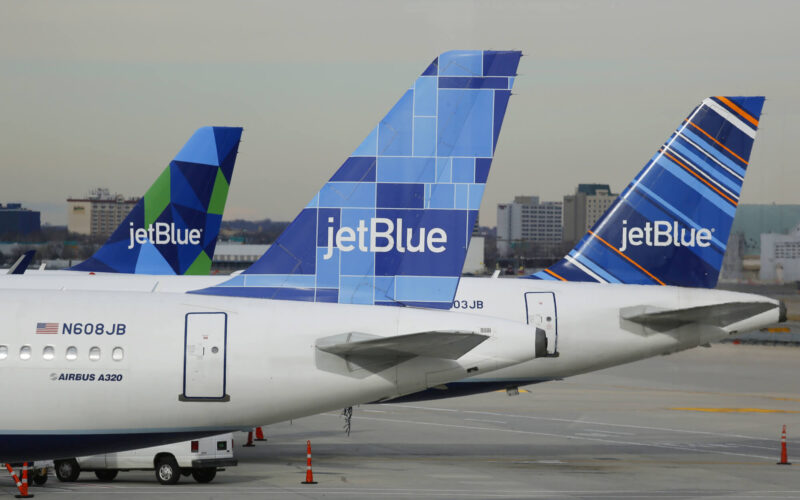United States-based low-cost carrier JetBlue (JBLU) inked an agreement with SG Preston, a bioenergy developing company, doubling its initial Sustainable Aviation Fuel (SAF) commitment announced in 2016, making this the most extensive SAF purchase agreement in aviation history.
JetBlue (JBLU) had set a target of converting 10% of its total fuel usage to SAF on a blended basis by 2030. The airline claims to be well ahead of its pace and expects to reach nearly 8% of SAF usage by the end of 2023.
Under the agreement, SG Preston will deliver at least 670 million gallons of blended SAF to JetBlue (JBLU) starting from 2023 until 2033 to fuel its flight operations at John F. Kennedy International Airport (JFK), LaGuardia Airport (LGA), and Newark Liberty International Airport (EWR).
“Earlier this year, we set specific, dated, and aggressive emissions targets,” said Robin Hayes, JetBlue (JBLU)’s chief executive officer, on September 29, 2021. “And now we are physically changing the fuel in our aircraft to meet these commitments.”
The deal is expected to bring the first large-scale volume of domestically produced SAF to New York’s metropolitan airports for a commercial airline.
“With this expanded agreement with SG Preston, nearly 8% of JetBlue (JBLU)’s total fuel use will be SAF, putting us well ahead of pace in reaching our goal of 10% SAF usage by 2030,” added Hayes.
The transition from traditional Jet-A fuel is forecasted to reduce emissions by an estimated 80% per gallon of neat SAF and reduce greenhouse gas emissions without affecting the aircraft’s operational safety or performance.
Sustainable aviation fuel is jet fuel produced from biological resources that can be replenished rapidly without impacting the food supply.
“The reality of achieving the US sustainability target of approximately 35 billion gallons of sustainable aviation fuel by 2050 is daunting,” said Randy Delbert Letang, chief executive officer of SG Preston. “Engaging with, and addressing the concerns of all key stakeholders and contributors to the solution, is paramount to successfully reaching this target.”
SG Preston’s sustainable fuel will be produced from waste fats, oils, greases, and non-food oilseeds and is planned to be blended with Jet-A fuel at an estimated 30% blend ratio before being transported to JFK, LGA, and EWR.
JetBlue (JBLU)’s expedited transition to SAF correlates to its decarbonization strategy, including aircraft efficiency, fuel optimization, sustainable aviation fuel, electric ground operations, technology partnerships, and carbon offsetting.
“We recognize that airlines have a responsibility to decarbonize our operations and usher in an era of truly sustainable travel,” said Hayes indicating the airline’s commitment to sustainable operations.
JetBlue (JBLU) currently operates a fleet of 261 aircraft, including five Airbus A220s, 118 A320s, 80 A321s, and 58 Embraer ERJ 190s as per planespotters.net.

